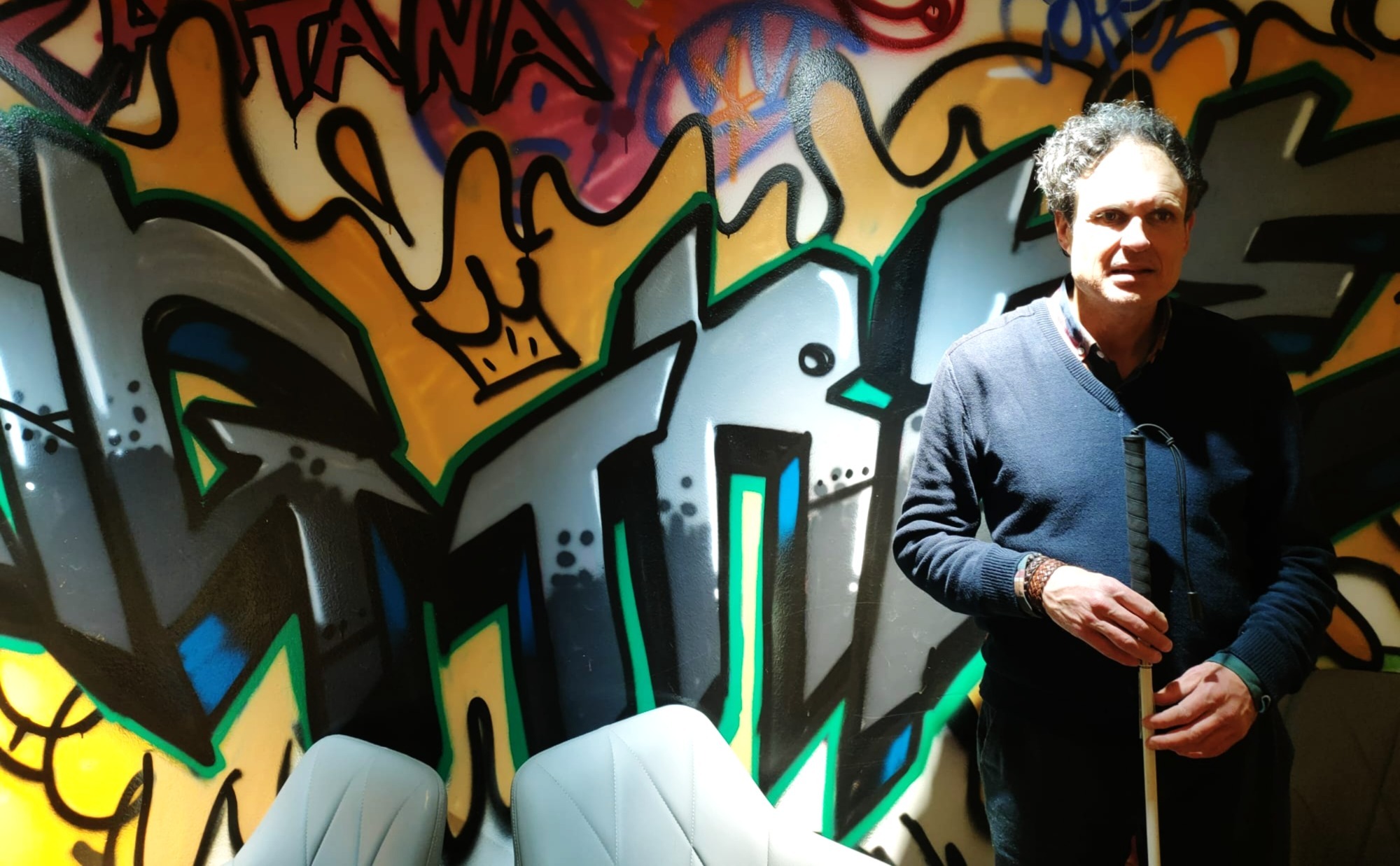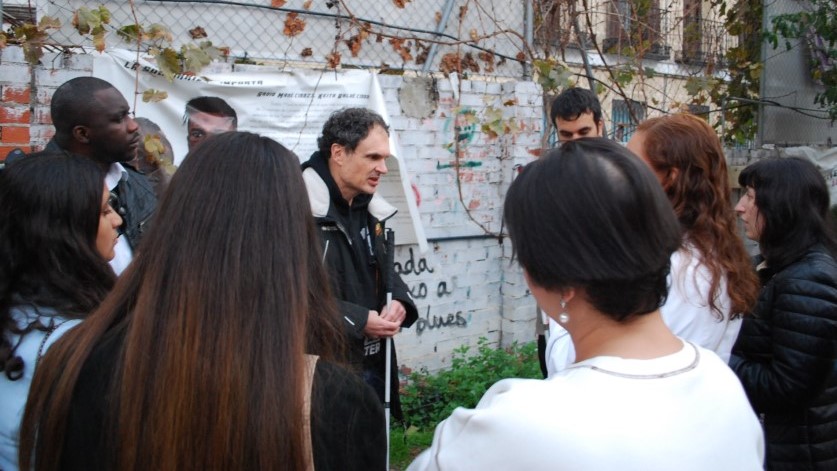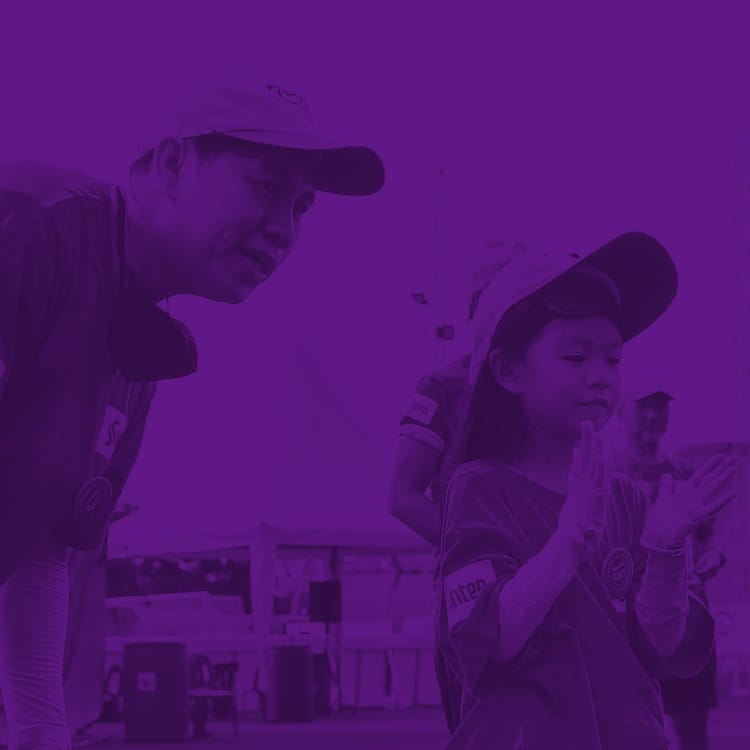
The phrase “football in Madrid” evokes images of the city’s top two clubs – Atlético de Madrid and Real Madrid – clashing in tense derby matches or facing Europe’s best teams in the Champions League. The Spanish capital, however, is home to a small, community-based club – Los Dragones de Lavapiés (The Lavapiés Dragons) – whose social impact is arguably doing more than these two footballing giants to improve life in the city for some of its disadvantaged residents.
The Dragons are based in Lavapiés, a vibrant, multi-cultural and diverse neighbourhood located just south of the city centre, but also an area with significant populations at risk of social exclusion due to, among others, economic reasons and immigrant status. Los Dragones de Lavapiés offers these people an opportunity to engage in sport and integrate in the community.
IBF Foundation’s man in Madrid met Jorge Bolaños, who founded the club in 2014, to learn more about the Dragons and the work it is doing in the neighbourhood. Jorge is a softly-spoken, unassuming local resident who moved to the area from his native Canary Islands and who, despite the Dragons’ success over the past ten years, is not prone to bragging about his work to make Lavapiés a better place. Jorge is also blind.
When asked what inspired him to set up the club and what his aspirations were at that time, Jorge mentions the need to fill a gap in the neighbourhood. While Lavapiés has well-rooted and long-standing social movements, there were no sport-based initiatives beyond the local schools and no sports club in the area to represent it. Setting up an inclusive space for sport in Lavapiés was an ambitious project, Jorge recalls, to use sport as a tool to encourage diverse communities in the neighbourhood to live together in harmony.
Despite having very limited resources initially, Jorge believes the club has managed largely to achieve some of its initial goals. There was no year-on-year planning with annual targets – Jorge describes himself and his club colleagues as “quite anarchic” – due to the unpredictable nature of the neighbourhood. An ability to react to changing circumstances to overcome unforeseen obstacles was crucial to the success of the venture.
The club faced a number of challenges during the first years, including a lack of resources and lack of access to decent sports facilities to allow cash-strapped local residents to play on artificial grass pitches at an affordable cost or even free-of-charge. Other challenges included building up social networks inside and around the club for the good of the neighbourhood while seeking success also on the pitch in terms of results.
The club, which now hosts regular training sessions and social activities at a purpose-built facility in the heart of the neighbourhood, struggled at first to find a physical space to operate. Conditions weren’t ideal at the start – Jorge remembers sessions where up to 30 or 40 kids trained together on a futsal pitch – but many local residents believed in the idea and results gradually improved.

The Dragons have expanded and grown to offer other sports, including basketball, inclusive running and chess, and its popularity has increased through the years. It is now “more than a club” – something Jorge says is one of its reasons for existing – and provides a space for sharing experiences and offering mutual support. Players and their families find a place to talk about their social reality – problems at school, difficulties with housing in the neighbourhood, etc. – and the club co-operates with local social services to deliver social initiatives, such as a project to reduce school absenteeism among the local Roma community.
Another outstanding example of the Dragons’ social impact in Lavapiés came during the pandemic, when the club set up a food bank and received strong support from residents.
Jorge admits he faced some resistance and obstacles due to his visual impairment when taking on his role as a leader in the club and neighbourhood. He was told straight out by a local official that a person like him couldn’t lead a project like Lavapiés Dragons but, although many of the families involved in the club come from cultures where disability is still taboo and people with disabilities are hidden and excluded from society and deprived of the opportunity to gain an education or seek employment, they gave him their support and trust when they realised he was capable and his disability was not a barrier.
Lavapiés Dragons also works hand-in-hand with local schools, civil society organisations and businesses, with many of the players attending schools in the neighbourhood before going on to training in the evening. Local companies offer support, although Jorge admits sponsorship is difficult to secure.
In the eleven years since the Lavapiés Dragons was set up, the club has steered many local youngsters away from local gangs and contributed to their becoming fully-integrated citizens with jobs and families. Some players have moved on to become semi-professionals, while one is an internationalist with the Dominican Republic.
The club teaches its players values such as respect, acceptance of diversity, sharing, mutual support and the need to live harmoniously in our communities by example rather than instruction. Players who suffer racial discrimination are given the tools they need to overcome the situation and thrive.
IBF Foundation has had the pleasure of visiting the Lavapiés Dragons twice with the participants in our Global Leadership Camps, to learn first-hand about the organisation. For Jorge, meeting the participants – diverse groups of blind and partially-sighted young people from all over the world – was motivating and exciting and he was impressed with their initiative. He believes it is vital for people with disabilities to stand up and take the lead in social projects, both in the disability field and beyond, in their neighbourhoods and communities. He was delighted to meet our participants and highlights the need to provide ongoing support for their projects.
Jorge’s parting message for people with disabilities who want to make a difference and foster social good, as he has done in Lavapiés, is to persevere and not to be afraid. If one project fails other initiatives will come up. Being decisive and resilient are key qualities and by succeeding they will open doors and lead the way for upcoming generations of people with disabilities to go on to achieve even more. Jorge believes we need to show solidarity with those who come after us and strive to make it easier for them.
In its short history, Lavapiés Dragons, a unique organisation in the Madrid sports ecosystem, has had a profound impact on the lives of many of its players and their families, as well as on the neighbourhood it calls home. IBF Foundation is honoured to co-operate with such an organisation and wishes the club every success in the future.



